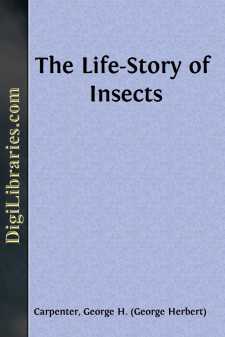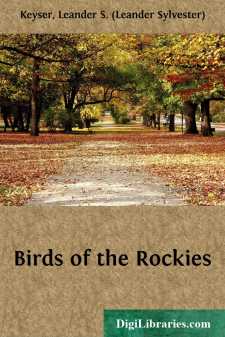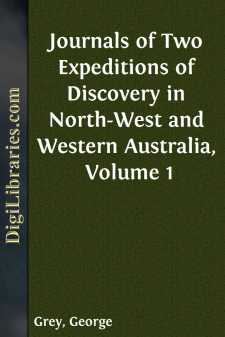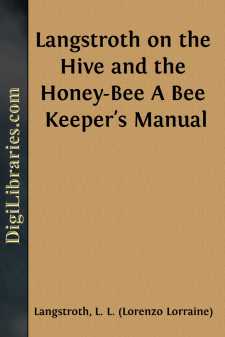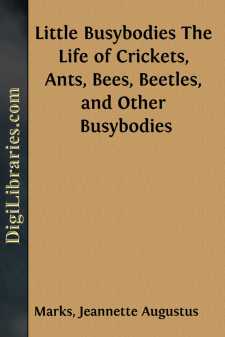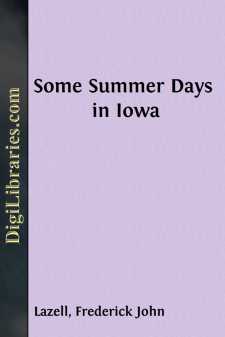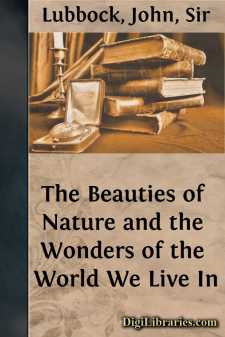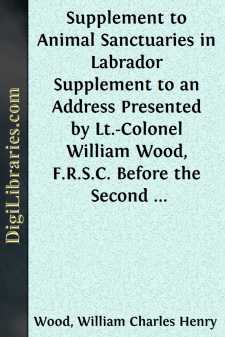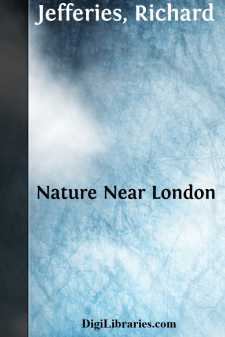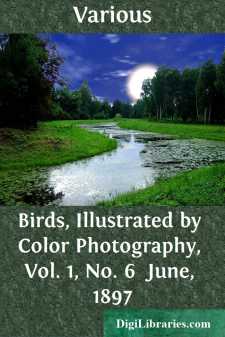Nature
Nature Books
Sort by:
Among the manifold operations of living creatures few have more strongly impressed the casual observer or more deeply interested the thoughtful student than the transformations of insects. The schoolboy watches the tiny green caterpillars hatched from eggs laid on a cabbage leaf by the common white butterfly, or maybe rears successfully a batch of silkworms through the changes and chances of their...
more...
BRIEF FOREWORD With sincere pleasure the author would acknowledge the uniform courtesy of editors and publishers in permitting him to reprint many of the articles comprised in this volume, from the various periodicals in which they first appeared. He also desires to express his special indebtedness to Mr. Charles E. Aiken, of Colorado Springs, Colorado, whose contributions to the ornithology of the...
more...
by:
George Grey
CHAPTER 1. COMMENCEMENT OF THE EXPEDITION. TENERIFE. GENERAL PLAN AND OBJECTS. The Expeditions of which the results are narrated in the following pages took their origin from a proposition made to Government by myself, in conjunction with Lieutenant Lushington,* in the latter part of the year 1836.(*Footnote. Now Captain Lushington of the 9th Foot.)At that time a large portion of the western coast and...
more...
L. L. LANGSTROTH'S MOVABLE COMB HIVE.Patented October 5, 1862. Each comb in this hive is attached to a separate, movable frame, and in less than five minutes they may all be taken out, without cutting or injuring them, or at all enraging the bees. Weak stocks may be quickly strengthened by helping them to honey and maturing brood from stronger ones; queenless colonies may be rescued from certain...
more...
A WORD TO THE CHILDREN AND THE WISE We hope that the children who read this book will like the boys and girls who are in it. They are real, and the good times they have are real, as any boy or girl who has lived out-of-doors will know. And the stories are true. Peter is not always good. But do you expect a child always to be good? We do not. Sometimes, too, the frolics turn into a scramble to catch a...
more...
VII.—AN OLD ROAD IN JULY In the old woods road a soft haze hung, too subtle to see save where its delicate colorings were contrasted against the dark green leaves of the oaks beyond the fence. Not the tangible, vapory haze of early morning, but a tinted, ethereal haze, the visible effluence of the summer, the nimbus of its power and glory. From tall cord grasses arching over the side of the road,...
more...
by:
John Lubbock
INTRODUCTION The world we live in is a fairyland of exquisite beauty, our very existence is a miracle in itself, and yet few of us enjoy as we might, and none as yet appreciate fully, the beauties and wonders which surround us. The greatest traveller cannot hope even in a long life to visit more than a very small part of our earth, and even of that which is under our very eyes how little we see! What...
more...
Supplement To An Address ON BY Lieut.-Colonel William Wood, F.R.S.C. The appeal prefixed to the original Address in 1911 announced the issue of the present supplement in 1912, and asked experts and other leaders of public opinion to set the subject on firm foundations by contributing advice and criticism. The response was most gratifying. The twelve hundred review copies sent out to the Canadian press,...
more...
NATURE NEAR LONDON WOODLANDS The tiny white petals of the barren strawberry open under the April sunshine which, as yet unchecked by crowded foliage above, can reach the moist banks under the trees. It is then that the first stroll of the year should be taken in Claygate Lane. The slender runners of the strawberries trail over the mounds among the moss, some of the flowers but just above the black and...
more...
by:
Various
BIRD SONG. “I cannot love the man who doth not love,As men love light, the song of happy birds.” T is indeed fitting that the great poets have ever been the best interpreters of the songs of birds. In many of the plays of Shakespeare, especially where the scene is laid in the primeval forest, his most delicious bits of fancy are inspired by the flitting throng. Wordsworth and Tennyson, and many of...
more...


